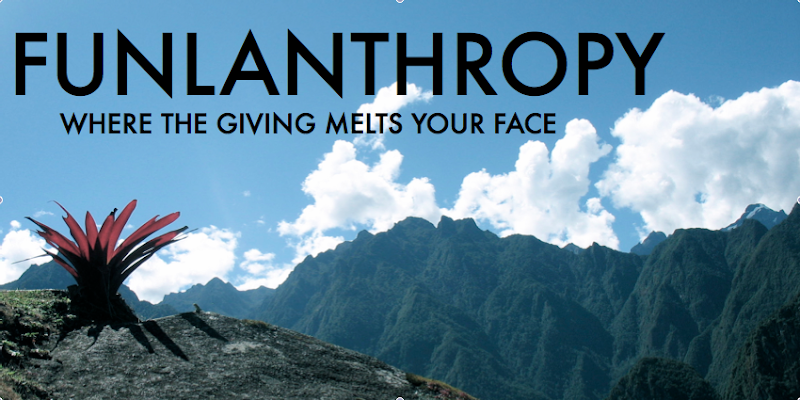Saturday, December 18, 2010
Wednesday, December 1, 2010
Books Not Bombs
Sunday, October 31, 2010
Happy 25th AJWS!
American Jewish World Service (AJWS) is an international development organization motivated by Judaism’s imperative to pursue justice. AJWS is dedicated to alleviating poverty, hunger and disease among the people of the developing world regardless of race, religion or nationality. Through grants to grassroots organizations, volunteer service, advocacy and education, AJWS fosters civil society, sustainable development and human rights for all people, while promoting the values and responsibilities of global citizenship within the Jewish community.
Keep up the great work!
Saturday, October 16, 2010
One Day Without Shoes April 5, 2011
 TOMS Shoes was founded on a simple premise: With every pair you purchase, TOMS will give a pair of new shoes to a child in need. One for One. Using the purchasing power of individuals to benefit the greater good is what we're all about. The TOMS mission transforms our customers into benefactors, which allows us to grow a truly sustainable business.
TOMS Shoes was founded on a simple premise: With every pair you purchase, TOMS will give a pair of new shoes to a child in need. One for One. Using the purchasing power of individuals to benefit the greater good is what we're all about. The TOMS mission transforms our customers into benefactors, which allows us to grow a truly sustainable business.Why shoes?
Many children in developing countries grow up barefoot. Whether at play, doing chores or going to school, these children are at risk:
- A leading cause of disease in developing countries is soil-transmitted diseases, which can penetrate the skin through bare feet. Wearing shoes can help prevent these diseases, and the long-term physical and cognitive harm they cause.
- Wearing shoes also prevents feet from getting cuts and sores. Not only are these injuries painful, they are also dangerous when wounds become infected.
- Often, children can't attend school barefoot because shoes are a required part of their uniform. If they don't have shoes, they don't go to school. If they don't receive an education, they don't have the opportunity to realize their potential.
Join us on April 5, 2011
http://www.onedaywithoutshoes.com/splash.php

Sunday, August 22, 2010
Stand With The People In Need In Pakistan
Give as much as you can and Stand with the people in need in Pakistan. DONATE NOW!
Pakistan floods photo gallery | Oxfam International
Saturday, July 24, 2010
Sunday, July 11, 2010
Monday, May 24, 2010
Save Our Oceans: Meet the Plastiki
How much oil has to spill and how much of the ocean’s ecosystem do we have to kill before we can all agree that we must end our addiction to oil?
We shake our heads in disgust at the oil spilling into the Gulf but we're quick to jump into our gas powered cars, buy water in single use plastic bottles (plastic is made from oil), and use single use plastic bags every time we buy anything. We are responsible for the Gulf mess. Our continued dependency on oil is the reason why big oil companies can profit off of drilling in places too far out of reach to be plugged with something goes wrong.
We need to own up to our responsibility and dependency. This is not simply about finding a solution to the oil leak, but to start rethinking the way we live. We have been talking about conservation for a long time, but we have done very little about it. This crisis is an opportunity for our leaders to explain to the public why environmental action is needed now and for the public to understanding the benefits of being kind to Mother Earth.
Before the Gulf oil spill, David de Rothchild built an entire boat out of plastic bottles, The Plastiki, and set sail from San Francisco to Sydney in March 2010. The Plastiki expedition is not a fantasy adventure, its a statement meant to bring attention our urgent need to save our oceans NOW.
Sunday, March 21, 2010
This Is What Change Looks Like
Tuesday, March 16, 2010
Saturday, March 6, 2010
Sunday, January 24, 2010
Wednesday, January 13, 2010
Zanmi Lasante (“Partners In Health” in Haitian Kreyol)

A massive and immediate international response is needed to provide food, water, shelter and medical supplies for tens of thousands of people effected by the devastating earthquake in Port-au-Prince.
Earthquakes are acts of nature but extreme vulnerability to a natural disaster is not. Haiti is one of the world’s poorest countries.
For two decades, Partners In Health (PIH)’s has successfully built a sustainable, community-based public health system for the people of Haiti. Dr. Paul Farmer, co-founder of PIH has made it his mission to transform healthcare on a global scale, by focusing on the world’s poorest and sickest.
Partners In Health is a well established effective aid organization working in Haiti. PIH has hospitals and highly trained medical staff in place in Haiti, they’ve already mobilized resources and are preparing plans to bring additional medical assistance and supplies to areas that have been hardest hit.
I urge you to join me in contributing to relief efforts underway in Haiti. Right now the greatest need is financial support. Make a gift today to help the people of Haiti.
DONATE NOW TO PIH's EARTHQUAKE RELIEF FUND
To learn more about public health issues facing Haiti before the earthquake, Partners In Health and my hero Dr. Paul Farmer I highly recommend Tracy Kidder’s book Mountains Beyond Mountains.
.png)










